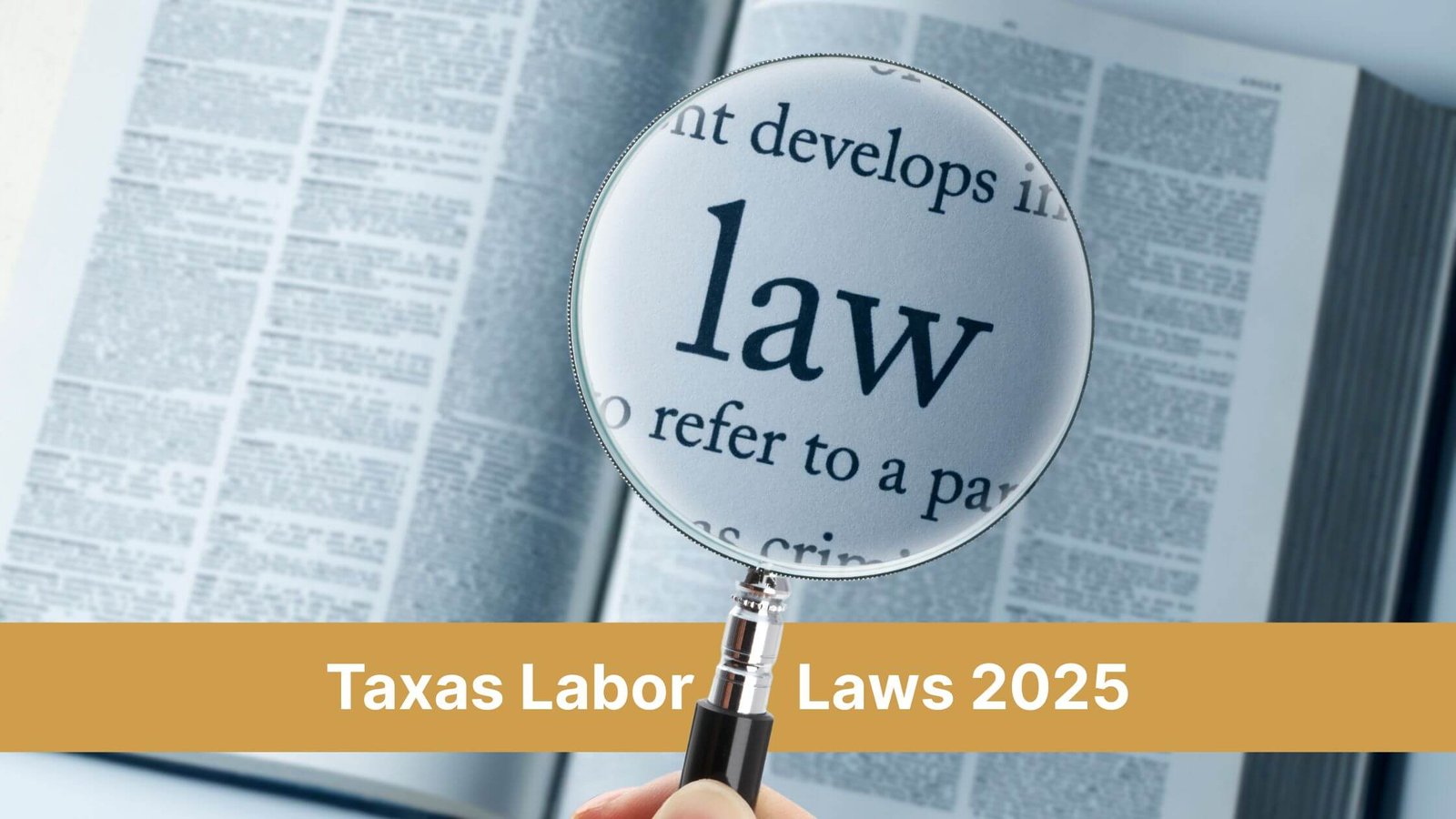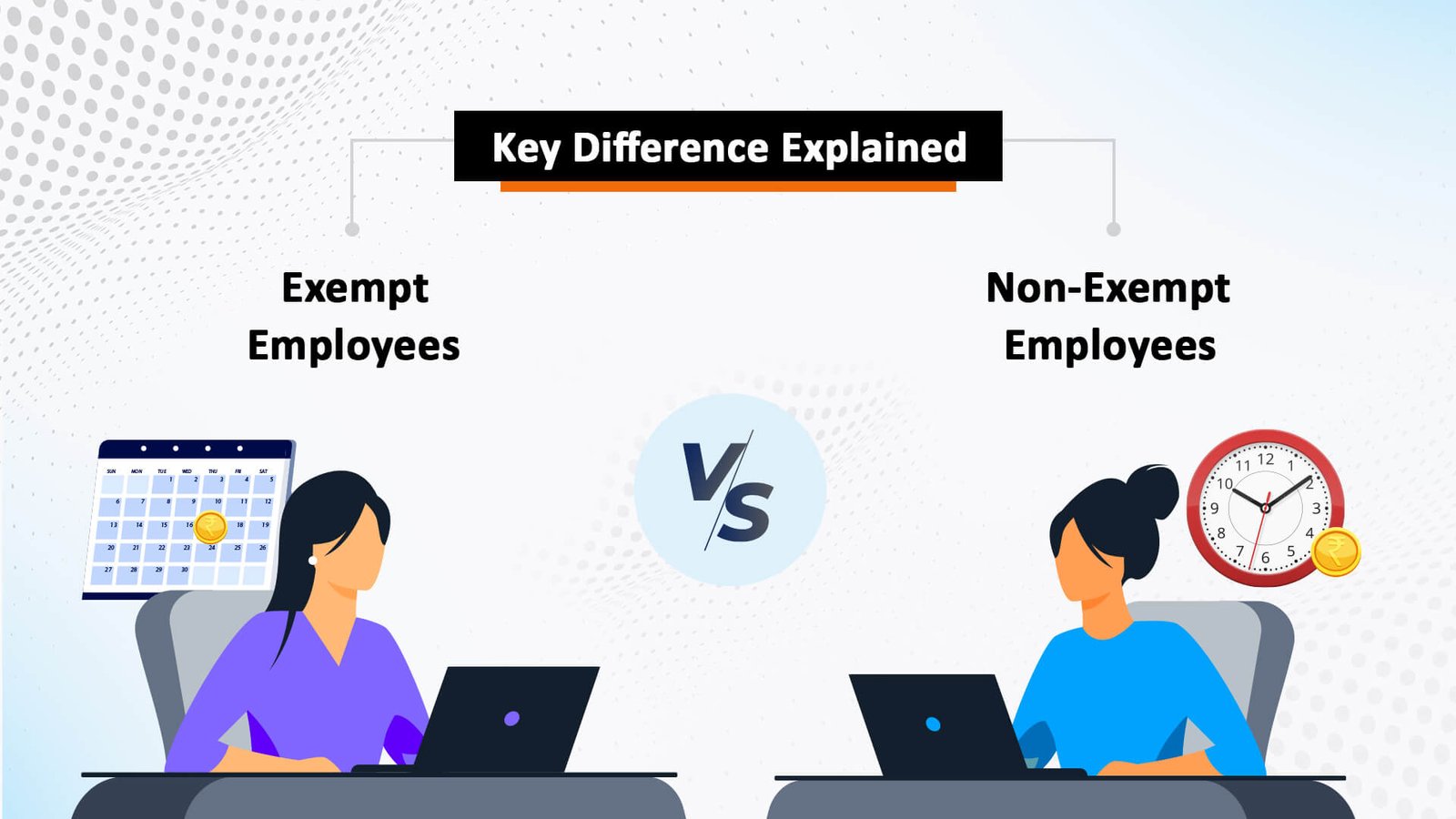Texas is known for its Texas labor laws and employment laws, with slight variations in flexible regulations. However, if you are looking to hire in Texas, it is vital to stay informed about Texas employment laws and HR compliance considerations.
Texas features a friendly employment landscape with relatively flexible regulations. The city remains the nation’s 11th-largest seaport. Texas City is a deepwater port on Texas’s Gulf Coast, as well as a petroleum-refining and petrochemical-manufacturing center.
Texas regulations are a mixture of federal and state laws that vary from state to state. From health insurance to minimum wage rates, monitoring Texas’s evolving employment and labor laws can be formidable.
Primary Texas Employment Laws & Practice
Typical working hours
In the state of Texas, full-time employment is considered to be between 30 and 40 hours per week, but this is not stated anywhere in the state law. However, this might vary depending on the type of work a firm does.
Being a salaried employee, the regulations on working hours and overtime are governed by the federal Fair Labor Standards Act (FLSA) and the Texas Labor Code.
According to these laws, salaried employees are spared from overtime if they earn more than the federal exemption threshold and perform executive or professional roles. In Texas, the salary bracket for exemption is $684 per week.
Contracts generally highlight the working hours and terms of contract workers and self-employed professionals. To ensure the fair treatment of these workers, these contracts must comply with all state and federal laws.
Low Wages and Overtime
The present minimum wage in Texas aligns with the federal minimum wage is $7.25 per hour. For example, the youth minimum wage is at $4.25 per hour, though the minimum wage stands at $2.13 per hour.
As for overtime, non-exempt employees in Texas who work more than 40 hours in a week are qualified to receive overtime pay at 1.5 times their regular pay rate as per FLSA. The criteria for exemption include earnings above a certain rate and performing a specific role.
Employment Law & Labor Laws
Employment and labor laws have similarities, but they differ in terms of legal implications. The primary difference lies in the parties involved. Laws concern the relationship between employees and employers.
Insurance and Benefits
In Texas, employers contribute to their employees’ FICA Social Security and Medicare as part of their payroll contributions.
Employers are required to provide unemployment insurance at different rates, depending on factors like the size of their workforce. Most employers in Texas do not need to carry workers’ compensation insurance. However, these so-called nonsubscribers should file an annual notice which indicates with the Texas Department of Insurance.
| Employer Contributions | Rate |
| FICA Social Security | 6.2% |
| Unemployment Insurance | 7.25% |
| FICA Medicare | 1.45% |
| FUTA tax | 6.0% |
Rest & Break Periods
In Texas, the Texas labor laws do not have any specific regulations, which allows the provision of rest or meal breaks for the employees, with one exception related to breastfeeding mothers.
The rule requires employers to display a sign in a noticeable spot explaining the Texas labor laws’ meal breaks and their requirements in English and Spanish.
Employers need to provide a safe place other than a bathroom that is shielded from view and free from intrusion from other employees and the public.
Moreover, employers should be well aware of the Federal Fair Labor Standards Act (FLSA), which does not require employers to provide employees with texas labor laws hourly employees. Still, it does have provisions for when these can be offered.
Child Labor Laws
The Texas Child Labor Law applies to any employee who is under the age of 18. The law makes it illegal to employ a child under the age of 14, except for a limited set of exemptions. These include:
- Working as performers with authorization from the Texas Workforce Commission.
- Employment in non-scheduled work that does not put a child’s life in danger and to which the guardian has consented.
- Newspaper delivery by children aged 11.
- Direct sale of newspapers to the public by children aged 16.
- Participating in a school work program that TWC approves.
Anti-Discrimination Laws
Texas employment law includes tightening protections against workplace discrimination. The Texas Labor Code Chapter 21 (The Texas Commission on Human Rights Act), which prevents employers from discriminating against employees based on race, disability, religion, origin, or age of 40 or over.
The state of Texas labor laws extend the protections to cover pregnancy status as well as general information. It is worth mentioning that gender identity is not mentioned in the state laws, and some municipalities within Texas have their own rules that offer protection in these areas.
Texas law forbids retaliation against employees who file a complaint or participation in a discrimination investigation.
Leave Policies
Leave policies in Texas are dictated by federal regulations and employers’ discretion, as Texas does not have any state-specific laws regulating vacations.
Sick leave is covered by the federal Family and Medical Leave Act (FMLA), which provides up to 12 weeks of unpaid and job-protected leave per year for specific medical and family reasons.
Attention must be provided to paternal and parental leave policies, as both state regulations and the FMLA govern these policies. Maternity leave under the FMLA allows a mother who is working up to 12 weeks should be granted leave in any one year of birth.
| Leave Type | Duration | Paid/Unpaid | Conditions |
| Vacation Leave | Discretionary | Discretionary | Determined by the employer. |
| Sick Leave | 12 weeks | Unpaid | The employee must have worked for the employer for at least one year and logged 1,250 hours in the past year. |
| Paternal Leave | 12 weeks | Unpaid | For childbirth and newborn care within one year, with added protections under the Texas Pregnancy Discrimination Act. |
| Parental Leave | 12 weeks | Unpaid | For adoption or foster care within one year of placement. |
| Bereavement Leave | Discretionary | Discretionary | Determined by the employer. |
Labor Union Regulations
Texas has laws that support its designation as a right-to-work state. This means that employment cannot be denied based on an individual’s choice to join a labor union. Unions cannot require individuals to pay dues to their organization, even if the employee works in a position covered by a collective bargaining agreement.
The law prohibits public state employees, including school teachers, from engaging in labor strikes. In general, labor disputes are handled in accordance with the terms of a labor contract.
Termination Laws
Texas operates under an at-will employment doctrine, which means that either the employee or the employer can terminate the employment relationship at any time. There are exceptions that public-sector employees who have certain due process rights and employees under contract can only be terminated for reasons defined in the contract.
Although there is no mandatory notice period for terminations in Texas, it is common practice for employers to provide two weeks’ notice. In the case of larger dismissals, the employer must comply with the federal Worker Adjustment and Retraining Notification Act (WARN), which requires 60 days’ notice.
Texas labor laws 2025 do not mandate severance pay unless it is stipulated in an individual’s employment contract. However, it is common for employers to offer several packages based on an employee’s length of service.
Health & Safety
In Texas, all employers have a legal obligation to provide a safe and secure health environment. This responsibility is then mandated by the federal Occupational Safety and Health Act (OSHA) and strengthened by Texas labor laws 2025.
Employers should follow safety regulations relevant to their specific industry, including personal protective equipment. They must also maintain a record of workplace injuries and illnesses and report serious incidents to OSHA.
Employment Contract & Severance
Employment Contract Laws
Texas does not require employment contracts, as it is an at-will employment state. This means that employment can be terminated by either the employee or the employer at any time for any reason.
Though no employment contract is required, employers and employees are free to insert any written agreement they like as long as all terms comply with the laws.
A non-compete clause can be included in employment contracts, but it should be reasonable in terms of:
- For how long will it remain in effect?
- The geographical area where the non-compete applies.
- Scope of activities covered by the non-compete.
Severance Pay
There is no legal obligation for employers in Texas to offer severance pay. Employers who offer severance pay in writing is obligated to create the agreed payment under the Texas Payday Law.
Texas Employees Should Use a Free Payroll Stub Generator
If you’re an employee and you’re facing challenges in calculating your taxes or managing your finances effectively, you can rely on our tool to organize your work.
If you’re using any expensive tool that is proving costly to you, then you can use Stubcreator’s free paystub generator, which provides you with accurate Texas payroll calculation information.
You can use the above information about employment laws in Texas to update your business in 2025.
Curious Minds Also Ask
1- What are the labor laws in the state of Texas?
Texas labor laws 2025 cover a range such as minimum wages, overtime pay, anti-discrimination, and child labor regulations.
2- How many hours straight can you legally work in Texas without a break?
With a 30-minute meal break and a 5-hour work shift, it is cited as a workday.
3- What is illegal for employers to do in Texas?
It is unlawful for employers to discriminate against employees based on characteristics such as race, color, or religion, age (40 or more), or genetic information in all aspects of employment, including hiring, promotions, wages, and benefits.
4- What are unfair labor practices in Texas?
Unfair labor practices in Texas include various actions by employers that interfere with employees’ rights, including discrimination based on protected characteristics and violations of the National Labor Relations Act (NLRA), which is related to union activities and collective bargaining.
5- How does salary pay work in Texas?
In Texas, in comparison with other states, federal guidelines generally involve paying employees a fixed amount irrespective of the number of hours worked, with salaried employees not needing to clock in.
6- What are the termination laws in Texas?
Texas is an at-will employment state, which means either an employer or employee can terminate the employment relationship at any time for any reason at all, as long as the reason for termination is legal.
7-What is the payday law in Texas?
The Texas payday law states that the employer in Texas pays their employees on a regular basis and provides an administrative process for wage disputes.
8-What is the Labor Code 21 in Texas?
The Texas Labor Code 21 focuses on discrimination and equal employment opportunities within the strategic agencies, which require various reports to ensure that workforce representation aligns with Texas’s population laws.
9- Is it legal to work 7 days a week in Texas?
Yes, it is illegal to work 7 days a week in Texas. Texas does not prohibit employers from requiring employees to work 7 days a week, nor does it require days off for employees.
10- What is considered full-time in Texas?
30 to 40 hours per week is considered full-time employment in Texas, as per the laws set by the U.S. Department of Labor and the Internal Revenue Service (IRS).
11- Can you drink alcohol on your lunch break in Texas?
In Texas, there are no specific state laws that prohibit alcohol on office grounds or during lunch break at work.
12- Do you have to pay overtime in Texas?
Yes, you have to pay overtime to employees who work more than 40 hours in a workweek.
13- What is the new salary law in Texas in 2025?
There are no new salary laws in Texas in 2025 that change the existing overtime rules for salaried workers.
14- Is it illegal to have two jobs in Texas?
No, it is not illegal to have two jobs in Texas. There are no federal or state laws that prohibit working multiple jobs simultaneously.
15- Can you get fired without a written warning in Texas?
Yes, in Texas, you can get fired without any written warning. No set of prior warnings is given before an employee is fired.
16- Can I sue my employer in Texas?
Yes, you can sue your employer under various circumstances. Texas follows a principle of at-will employment, which means the employer can terminate employees for any reason.
17- What is wrongful termination in Texas?
In Texas, when an employer fires an employee for illegal activity violating state or federal laws, that is when a wrongful termination occurs.
18- Is $20 an hour good in Texas?
Whether $20 an hour is labeled good in Texas depends on the circumstances of an employee, like lifestyle or family size.
19- What is the cost of living in Texas?
The cost of living in Texas depends on lifestyle & location; but it is mostly considered affordable than other states, especially for those who live on the coasts.
21- Is a 2-week notice required in Texas?
No, a two-week notice is not legally required in Texas for at-will employees.
22- Who pays for unemployment in Texas?
In Texas, unemployment benefits are funded via a mixture of federal and state taxes, which is paid both the employer.
23- What is the layoff law in Texas?
Texas does not have specific state-level regulating for layoffs beyond the federal Worker Adjustment and Retraining Notification (WARN) Act.
24- Is it illegal to work 7 days in a row in Texas?
In Texas, it is not illegal to work 7 days in a row.
25- How many days is full-time?
Full-time employment is said to be working 40 hours per week, spread over five 8-hour days.
26- What are employee rights in Texas?
In Texas, employees have several key responsibilities, including the right to work of their choice, protection against discrimination, and the right to a just and humane workplace.
27- Is moonlighting illegal in Texas?
In Texas, it is generally not illegal, but it can be restricted by an employer through their policies.
28- Can I legally work for two companies?
Yes, in many cases, it is legally possible to work for two companies simultaneously.
29- What is moonlighting?
In Texas, moonlighting is defined as an employee working a second job which often outside of regular working hours in addition to primary employment.
What Is FICA Tax? A Guide to the Federal Insurance Contributions Act
FAQ's
What is the minimum wage in Texas for 2025?
+
As of 2025, the minimum wage in Texas remains at $7.25 per hour, unless updated by federal law or local ordinances.
Are meal and rest breaks required by law in Texas?
+
Texas labor laws do not mandate meal or rest breaks for adult employees; however, employers may offer them voluntarily or through company policy.
Has anything changed in Texas overtime laws for 2025?
+
No significant changes have been announced for 2025. Overtime pay remains required for non-exempt employees working over 40 hours per week, per federal law.
Do Texas labor laws provide paid sick leave in 2025?
+
Texas does not have a statewide paid sick leave law. However, certain cities may have local ordinances, so it's important to check local regulations.





